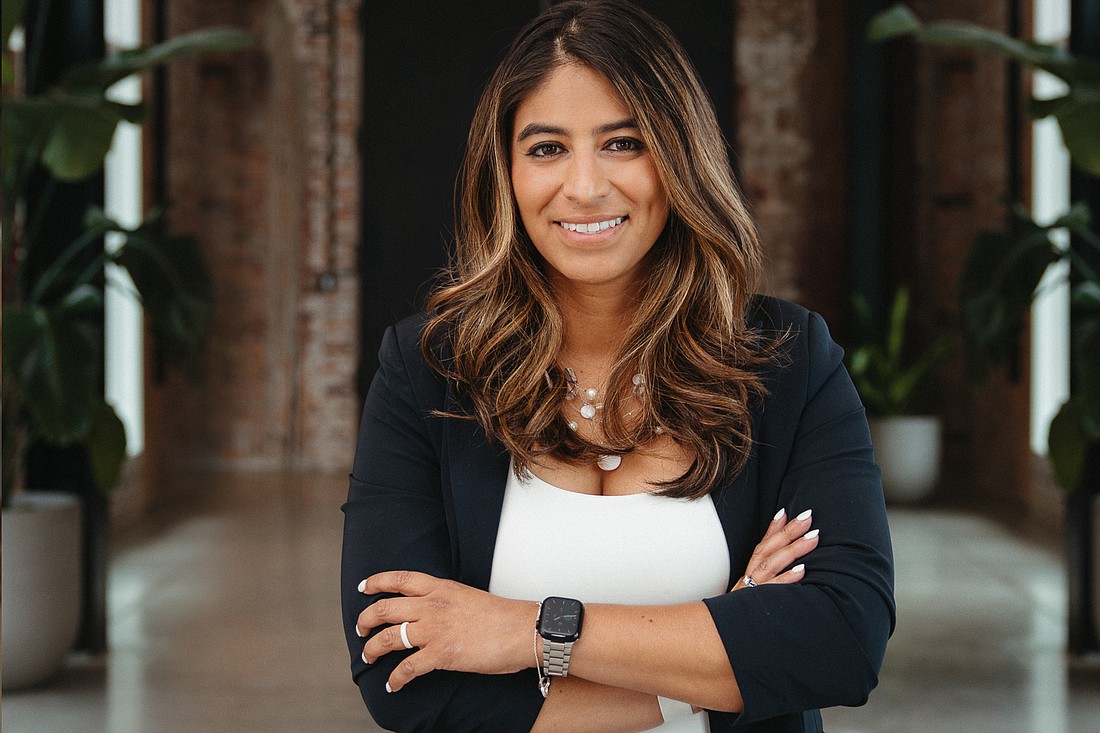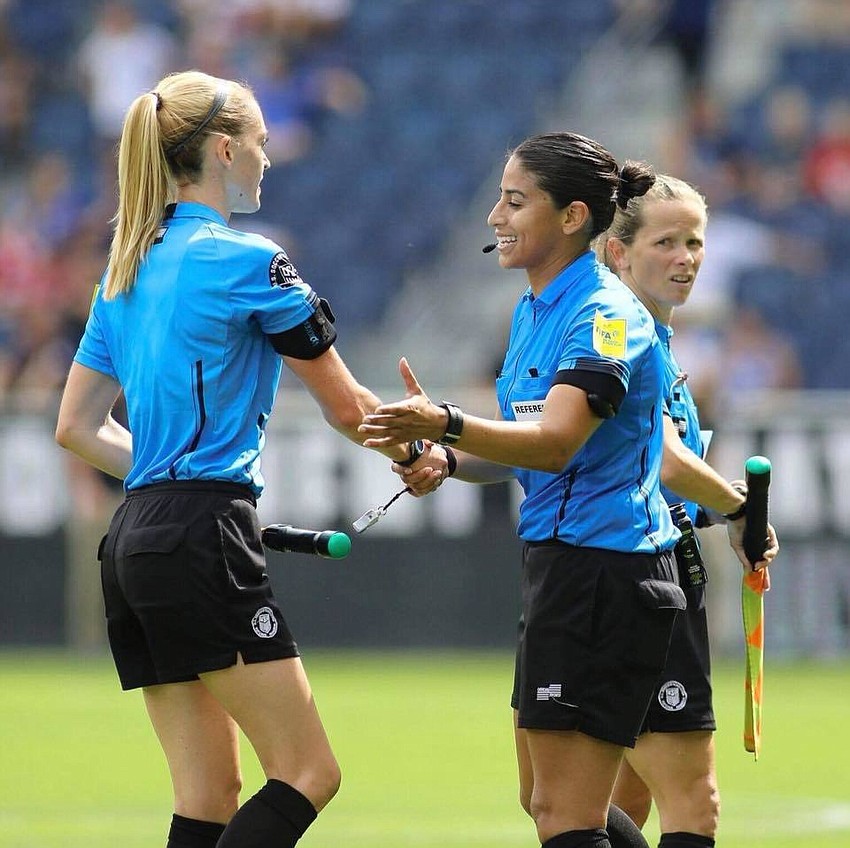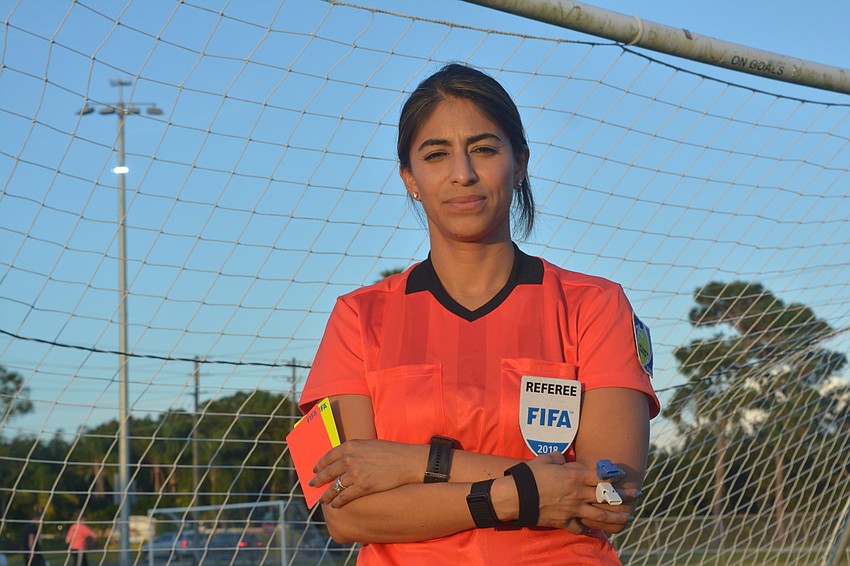- May 5, 2025
-
-
Loading

Loading

Christina Unkel has been involved in professional soccer for 15 years, but she's never taken on a job like this.
Unkel, 36, has been a FIFA referee and worked as a television analyst for the Women's World Cup, among other duties — while also working as an attorney and entrepreneur in Sarasota. Through her work, she's become an ambassador for the sport, and her experience and expertise have led to her biggest role yet.

On July 15, Unkel was named the club president of Super League Tampa Bay, an organization in the United Soccer League's new Super League, a professional women's soccer league aiming to begin play in August 2024. The league will have 10-12 teams for its inaugural season, including the Tampa Bay team, and plans to add at least five more teams in subsequent seasons pending the completion of various stadium projects.
Alongside Unkel's announcement, the club announced Denise Schilte-Brown as its head coach. Schilte-Brown was previously the coach at the University of South Florida for 17 years and represented the Canadian National Team in 1997.
Unkel said she's thrilled to be taking on a new challenge in the sport.
"It's a chance to use my non-soccer skills, from the business world and the legal world, and being able to marry that with what is truly my passion and what I believe is my calling on the soccer side," Unkel said. "I want to increase and expand exposure to soccer, to increase and expand access (within soccer) to women. Knowing this market well and knowing the soccer-verse, I feel like all things finally aligned."
The USL Super League will be fully professional and will apply to U.S. Soccer for Division I sanctioning, the highest level awarded — a change from when the league was first announced in 2021, when the USL said the Super League would be Division II. Currently, the only Division I-sanctioned women's league in the United States is the National Women's Soccer League, established in 2012. The two leagues will battle for fan interest, but the Super League will have features that distinguish it from the NWSL, like a "fall-to-summer" schedule running from August to June, that will allow players to play for both their club team and their country on a national level; the NWSL's schedule conflicts with events like the Women's World Cup, currently taking place in Australia and New Zealand. The schedule will also allow the league's clubs to actively participate in the sport's global transfer market, an emerging way for teams to secure talented players.

Unkel is not worried about the competition, to the extent she even sees it as such. In Unkel's eyes, creating more opportunities for women to become professional soccer players is automatically a win.
"Right now there are 12 NWSL teams with a roster limit of 26 players, so there's only 312 women who can play professional soccer in the United States," Unkel said. "Everybody else doesn't get paid. And in this country, of all countries; we're No. 1 when it comes to the global stage. There are 312 who can play here and the rest have to leave (to be pros). It's mind-boggling to me. People are being lost, understandably so, because there are no opportunities to pursue a dream."
With the creation of the Super League, Unkel said, more women will see soccer as a dream with a viable pipeline. The Super League will be the apex of the USL's women's soccer pyramid, with a pre-professional league called the W League — equivalent to the Sarasota Paradise's USL League 2 — and a talent-development program called the USL Academy in the middle, and a youth league called the Super Y League on the bottom.
Unkel said the Tampa Bay area is the perfect spot to start a team in the Super League, as both the professional sports scene and the area's female athletes are among the "most impactful groups" she has ever met. Unkel said the Tampa Bay Sports Commission has provided great support and human resources as the club tries to get off the ground, and other Tampa professional sports teams have been supportive as well, something that doesn't always happen other places. Unkel is also aware of how much the community itself embraces its teams, and she believes that is due to how much those teams give back off-the-field, a lead Super League Tampa Bay will follow.
The first thing on Unkel's to-do list is to decide on a name and branding for the team. That process has already begun, Unkel said, and those things should be announced by the fall, if not earlier. The next order of business is securing a stadium, and that process will likely take more time, Unkel said. The club would like to build a soccer-specific stadium. The club wants a spot that will be central for a majority of its fans to reach, including fans from Sarasota County, Unkel said.
In an era where women's soccer is regularly getting a chance to be seen on TV — and putting up rising numbers — Unkel wants the trend to continue with the Super League. Unkel is asking fans who say they support women's soccer to put action behind their words.
"It's buying a security deposit ticket," Unkel said. "It's investing in a season ticket. It's investing in corporate sales and partnerships. We know everyone 'supports' it. Now it's time to act on it, because the return on investment is there."